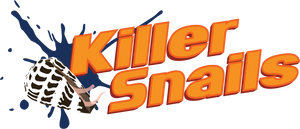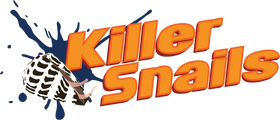Venom CoLab- ESSA Tier 2 Certified!

Venom CoLab, an inquiry-based, collaborative science experience for students in grades 6 to 10, is now certified as ESSA Tier 2! Over 5 class periods, students take on roles as scientists and work together to study venom. Each group of students studies a venomous organism like marine snails, snakes, sea anemones, or scorpions to find peptides or proteins from venom to use as potential treatment for health problems including pain, blood clotting, autoimmune diseases or cancer. Students serve in one of four scientist roles: Zoologist, Biochemist, Molecular Biologist, and Pharmacologist. Each role performs distinct tasks using personalized websites and augmented reality or webVR on a computer or tablet. Students learn from each other and collaborate during activities like lab meetings and experiments, working toward their goal of developing new treatments.
Documentation of the product’s effectiveness is supported by a randomized control trial conducted by a third-party research organization, Marcy Peak, with 699 middle school students from 32 classrooms across the United States, including urban, suburban, and rural areas. This study evaluated the impact of the Venom CoLab (VCL) platform on science education for 6th to 8th-grade students from science classes across the United States. It focuses on both efficacy- how VCL performs under controlled conditions- and effectiveness- how VCL performs in real-world classrooms. A randomized controlled trial (RCT), with students (N = 699) randomly assigned (by classroom) to either control (n = 316) or intervention (n = 383) groups, was conducted to provide empirical evidence for these outcomes.
Based on the analyses described above, it is evident that VCL was an effective tool for student learning. The most robust finding was that students who used VCL showed significant gains in knowledge of the science content that was part of the VCL curriculum. When comparing pre-to-post changes for all students, including students in the control group after they were able to use VCL, there was also an increase in teamwork score.
One of the clearest takeaways is how many teachers had an overall positive experience with VCL. Positive Experience came up 322 times, which is more than any other code. Teachers often praised the tool and expressed appreciation for how it worked in their classrooms. Related codes like Positive Feedback, Satisfaction, and Collaboration reinforce this. For example, one teacher shared: “I thought the whole experience was really helpful and refreshing. It brought something new into my teaching routine, and the students were really into it.”
Post-intervention interviews with 18 teachers provided insight into what worked well, and where there were challenges with the implementation of VCL into the classrooms. Coding of the teachers’ interviews reveal several key themes:
-
Overall, teachers had a positive experience with VCL.
-
Teachers appreciated how well VCL fit into their other classroom activities.
-
Teachers expressed personal enjoyment and a sense of renewal in seeing students use VCL.
-
Students were genuinely interested and involved in the VCL activities;
Marcy Peak, the external evaluators who ran this Randomized Control Trial have certified VCL as a Tier 2 ESSA – Moderate Evidence: supported by one or more well-designed and well-implemented quasi-experimental studies.
Venom CoLab was supported by a Small Business Innovation Research grant from the National Institute of General Medical Science of the National Institutes of Health under award number R44GM146490.

